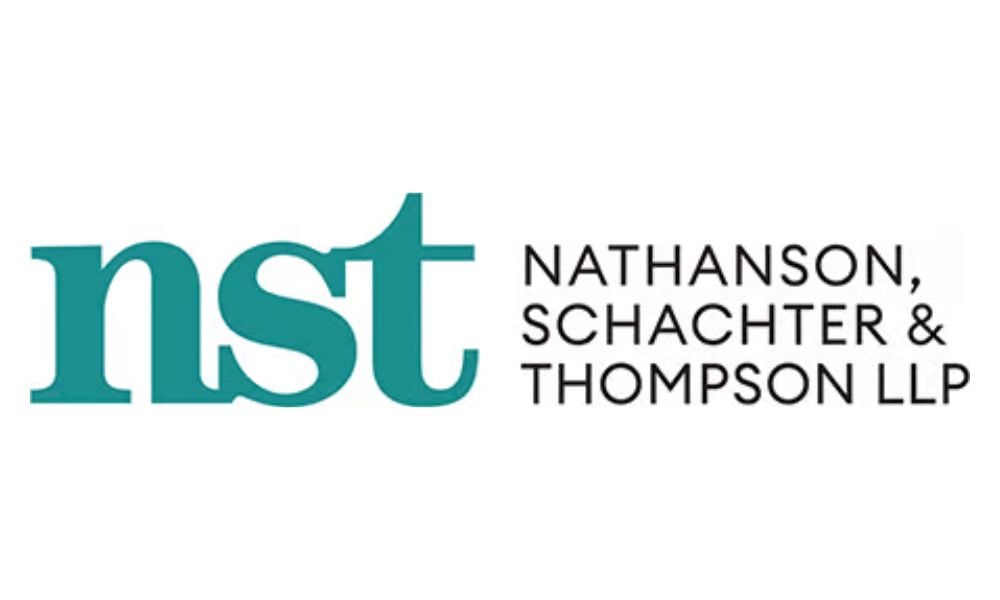In bankruptcy proceedings, a creditor who wishes to participate in the distribution of the bankrupt’s estate or other person claiming an interest in property within the estate must deliver a proof of claim to the trustee. If a claim is disallowed by the trustee, the creditor or claimant can appeal that decision to the Supreme Court as of right. However, in BC, creditors and claimants should be aware that uncertainties remain in respect of the nature of the appeal and the standard of review applicable to appeals from the disallowance of a claim. This article provides a survey of the evolving case law.
Statutory Scheme
Insolvency practitioners are familiar with the scheme for the trustee’s admission and disallowance of property claims under sections 81 and 135 of the Bankruptcy and Insolvency Act, R.S.C., 1985, c. B-3 (the “BIA”).
Under section 135, the trustee must examine every proof of claim and its supporting grounds. The trustee then makes a determination as to whether the claim is provable, and if so, the value of the claim. Where the trustee disallows the claim in whole or in part, the trustee provides the creditor with notice setting out the reasons for the determination. Under section 135(4), the creditor can appeal the trustee’s disallowance decision to the court within 30 days after service of the notice, or such further time as ordered by the court.
A less often observed situation is that of an appeal of a trustee’s decision to dispute a reclamation claim under section 81, where “a person claims any property, or interest therein, in the possession of a bankrupt at the time of the bankruptcy”. In that scenario, the trustee shall, within 15 days after the filing of claim or after the first meeting of creditors, whichever is later, either admit the claim or send a dispute notice to the claimant. The claimant has 15 days to appeal the trustee’s disallowance decision after the sending of the dispute notice.
Nature of the Appeal: “True Appeals” – With Exceptions?
In BC, the courts have consistently held that under section 135, the nature of an appeal from a trustee’s disallowance of claim is to be heard as a “true appeal” and not a trial de novo. This approach recognizes the deference owed to the special expertise of trustees in the areas of business financing, restructurings, and insolvency. As the Court of Appeal stated in Re Galaxy Sports Inc., 2004 BCCA 284 at para. 41 [Galaxy], if fresh evidence were to be adduced in the court on appeal as a matter of course, much would be lost in the way of efficiency in the operation of the bankruptcy scheme generally. The same approach extends to appeals under section 81: see Re White, 2021 BCSC 2031 at paras. 25-33.
The approach adopted in BC is not uniform across the country. Courts in Ontario, Alberta, Saskatchewan, Manitoba, and Nova Scotia have adopted a so-called “hybrid approach” — i.e., that the appeal is a true appeal, but the court has discretion to conduct an trial de novo where the interests of justice so require (Lloyd W. Houlden, Geoffrey B. Morawetz & Janis P. Sarra, The 2023 Annotated Bankruptcy and Insolvency Act (Toronto: Thomson Reuters, 2023) at § 6:273; YG Limited Partnership (Re), 2023 ONSC 4638 at paras. 29-30; Credifinance Securities Limited v DSLC Capital Corp, 2011 ONCA 160 at paras. 24-25; Re 5274398 Manitoba Ltd o/a Cross Country Manufacturing (Bankrupt), 2019 MBQB 89 at paras. 22-29 [Re 5274398]; Aronson v. Whozagood Inc., 2019 ABQB 656 at paras. 29-34; Gaum v. Grant Thornton Limited, 2020 NSSC 317 at paras. 23-24).
The Court of King's Bench of Manitoba in Re 5274398 at paras. 26-28 provided an apt summary of the conflicting interests at play. While a hearing de novo for every appeal would significantly increase costs and lead to delay in the administration of a bankruptcy proceeding, rigid adherence to the true appeal standard could result in a claimant—especially an unsophisticated claimant—being unfairly prejudiced in circumstances where additional evidence would prove their claim. While there is a risk that the “interests of justice” standard is too broad, encouraging claimants to seek a trial de novo in every appeal, the fact that the court retains discretion on whether to allow additional evidence provides claimants with at least some incentive to be diligent about the claim from the outset.
In a recent decision in BC, Blanchette (Re), 2020 BCSC 158 at para. 31 [Blanchette], the Court adopted this hybrid approach, relying on case law from the Ontario Court of Appeal. However, the Court in Blanchette did not consider Galaxy. It remains to be seen whether the courts in BC will apply the hybrid approach in future cases.
Standard of Review
Within the BC jurisprudence, it is clear that the standard review for extricable questions of law is correctness on appeals from a trustee’s decision under sections 81 and 135(4). However, the court has been divided as to the standard of review for questions of fact or mixed fact and law. This divergence is rooted in the question of whether standard of review principles stemming from administrative law should apply to the bankruptcy and insolvency context.
In Galaxy, the BC Court of Appeal based its analysis of standard of review on administrative law principles. The Court conducted a consideration of all the contextual factors mandated by the “pragmatic and functional” approach to determining standard of review applicable by a court of law to the decisions of administrative tribunals, including the specialized expertise of the trustee, the existence of a privative clause in section 135(4) of the BIA, and the nature of the question to be decided. The Court concluded that where a trustee’s decision disallowing a proof of claim involves compliance with a “mandatory” provision (i.e., a question of law or statutory compliance), a correctness standard applies (Galaxy at paras. 33-39). A number of subsequent cases followed the principles set out in Galaxy: see Roger (Re), 2018 BCSC 169 at para. 15; Sran (Re), 2010 BCSC 937 at para. 47; Campen v. Campbell Saunders Ltd., 2008 BCSC 1524 at para. 13.
However, in more recent cases, the court has applied the standards of review applicable to most civil appeals as set in Housen v. Nikolaisen, 2002 SCC 33 [Housen] — the standard of correctness for extricable questions of law, and the standard of palpable and overriding error for questions of fact and questions of mixed fact and law: see Byer (Re), 2022 BCSC 2018 at para. 99 [Byer]; Blanchette at para. 29; Pemberton Music Festival Limited Partnership (Re), 2018 BCSC 1310 at para. 18 [Pemberton Music Festival].
This divergence appears to have resulted from the decision in 8640025 Canada Inc. (Re), 2018 BCCA 93 [8640025].
8640025 concerned the standard of review that applies to an appeal of a monitor’s dismissal of a claim under the Companies Creditors’ Arrangements Act, R.S.C. 1985, c. C-36 (the “CCAA”). The facts of this case were unusual and complex. For the purposes of this article, it is sufficient to note that the monitor’s main task in the CCAA proceeding was to facilitate a sale of the assets of the group, but the monitor had difficulties verifying ownership of the assets and determining which assets were subject to the CCAA proceeding. As part of its efforts to reach an approved sale, the monitor sought a vesting order in September 2017. The September 2017 order created a “Disputed Claims Process”, which provided that, if an agreement could not be reached over the ownership of assets, claiming persons shall deliver a proof of claim to the monitor, and the monitor shall “either admit the claim or advise that the claim is not admitted”. Following this process, the monitor disallowed the proof of claim of a company called TNW Networks. An appeal to the Supreme Court of BC was taken from a subsequent order, but the court and counsel treated the hearing as an appeal of the monitor’s disallowance of the proof of claim (8640025 at para. 30). On further appeal to the BC Court of Appeal, the issue was whether, in CCAA proceedings, the standard of review on an appeal from a determination made by a court-appointed monitor conducting a proof of claim process is “overriding and palpable error; a clear and obvious mistake”, as opposed to “correctness” (8640025 at paras. 39-41)
The Court concluded that the appeal to the Supreme Court was subject to the Housen appellate standards of review. Justice Newbury, writing for a unanimous court, stated that this conclusion accords with persuasive Canadian authorities in the insolvency field, the statutory context, the special expertise of the monitor as an officer of the court that is qualified to act as a trustee under the BIA, and the practical realities of a CCAA administration (8640025 at paras. 41, 66).
In reaching this conclusion, Justice Newbury considered how jurisprudence under sections 81 and 135 of the BIA, including Galaxy, may apply to the CCAA context. Justice Newbury expressed doubt that administrative law considerations should be injected into the analysis of standard of review under the CCAA and stated as follows:
[60] Since Galaxy was decided, administrative law has changed substantially and the standards of review in ordinary civil appeals have solidified, beginning with Housen. Matters of mixed fact and law are now subject to the same standard as purely factual matters. I am doubtful that administrative law considerations should be injected into the analysis of standard of review in this case – except for the fact that the chambers judge appears to have conflated the “palpable and overriding error” standard (adopted at para. 15 of his reasons) with that of “reasonableness” (referred to in para. 13.) Although he purported to agree with Abitibi, the Housen standard – not reasonableness – was held to apply to the findings of fact or mixed fact and law at issue in that case. (That said, the two are probably not far apart: where a palpable and overriding error as to a factual matter is made, it would be difficult to say the analysis is nonetheless reasonable.)
It is important to note that 8640025 was decided before the Supreme Court of Canada’s decision in Canada (Minister of Citizenship and Immigration) v. Vavilov, 2019 SCC 65 [Vavilov], which dramatically altered the standard of review analysis in the administrative law context. Thus, the Court in 8640025 did not have occasion to consider whether Vavilov may impact the consideration of administrative law principles as applied in Galaxy.
The Court in 8640025 did not expressly overrule Galaxy or otherwise indicate that its analysis on standards of review as applicable to the CCAA proceeding extended to appeals under sections 81 and 135(4) of the BIA. However, Justice Newbury did consider that “the CCAA and BIA are to be regarded as parts of a larger scheme of insolvency legislation” (8640025 at para. 61). She also noted that the process followed by the monitor in this case was comparable to “reasonable investigations” normally conducted by trustees in bankruptcy in reviewing claims (8640025 at paras. 62-63).
Following the Court of Appeal’s decision in 8640025, there were divided lines of authority on the standard of review applicable to appeals under sections 81 and 135(4) of the BIA. In some subsequent cases, the Court continued to apply the standard of review as set out in Galaxy: see BC Hayes Canyon Road Maintenance Ltd., 2018 BCSC 1873 and Asian Concepts Franchising Corporation (Re), 2018 BCSC 1022. In other cases, the Court accepted that the standard of review as established in 8640025 applies: see Byer and Blanchette.
None of the subsequent cases have considered whether Vavilov may impact the consideration of administrative law principles as applied in Galaxy. One recent case from the Supreme Court of Newfoundland and Labrador suggests that it does. In that case, the Court directly applied the standard of review for statutory appeal mechanisms as set out in Vavilov to an appeal under section 81 of the BIA: see W D Kenny Granite Company, Inc (Re), 2021 NLSC 13 at para. 11.
In our opinion, a consideration of Vavilov in the context of sections 81 and 135 of the BIA would support the application of the Housen standard of review as applied in 8640025. Vavilov established that, where a statutory appeal mechanism is in place—as is the case under sections 81 and 135 of the BIA—the applicable standard of review is the Housen standard applicable to most civil appeals (Vavilov at para. 37). This approach is consistent with both Galaxy in respect of its considerations of administrative law principles, and 8940025 in respect of its application of the Housen standard.
It remains to be seen how the law will evolve in this regard.
***
 Edith Chen is one of a few bilingual and dual-jurisdiction educated litigators in Vancouver: she is called to the bar in British Columbia and possesses the PRC Department of Justice’s legal profession qualification certificate. She carries on a general commercial and civil litigation practice with a particular interest in complex commercial disputes. She has insightful analytical skills and extensive experience working with Chinese-speaking clients, including immigrants and newcomers to Canada. She has appeared before the British Columbia Supreme Court and Provincial Court and has assisted with matters before the British Columbia Court of Appeal.
Edith Chen is one of a few bilingual and dual-jurisdiction educated litigators in Vancouver: she is called to the bar in British Columbia and possesses the PRC Department of Justice’s legal profession qualification certificate. She carries on a general commercial and civil litigation practice with a particular interest in complex commercial disputes. She has insightful analytical skills and extensive experience working with Chinese-speaking clients, including immigrants and newcomers to Canada. She has appeared before the British Columbia Supreme Court and Provincial Court and has assisted with matters before the British Columbia Court of Appeal.
***
 Cindy Chen has a general commercial and administrative litigation practice, with experience assisting on matters before all levels of court in British Columbia and the Federal Court of Canada. She has also represented clients in commercial arbitrations. Prior to joining NST, Cindy practiced at the Vancouver office of an international law firm.
Cindy Chen has a general commercial and administrative litigation practice, with experience assisting on matters before all levels of court in British Columbia and the Federal Court of Canada. She has also represented clients in commercial arbitrations. Prior to joining NST, Cindy practiced at the Vancouver office of an international law firm.





